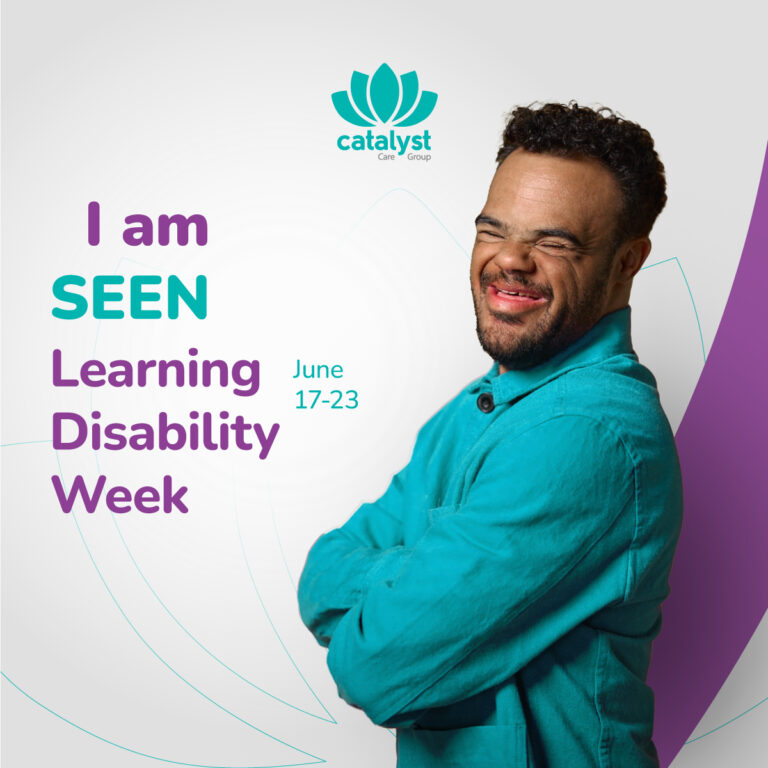In the modern workplace, where diversity and inclusion must lead the way, one key aspect often sparks questions: How can we fully embrace the unique perspectives of autistic people, empowering them as valued employees? As we undertake this transformative journey, the workplace becomes a place of boundless possibilities, where understanding, empathy, and progressive approaches redefine success.
Autism as Neurodiversity
Autism (Autism Spectrum Disorder), as neurodiversity, is a celebration of human differences rather than a deviation from the norm. The autism spectrum is a range of neurological experiences, each representing a unique perspective and set of abilities. Autistic people possess remarkable talents and skills, often excelling in attention to detail, pattern recognition, and creative problem-solving. Embracing autism as a form of neurodiversity means recognising the inherent value that autistic people bring to the workplace. While some autistic individuals may face social and communication skills challenges, it’s crucial to understand that these challenges do not diminish their worth or potential. Instead, fostering a supportive and inclusive environment while supporting neurodivergent individuals can unlock the full potential of autistic employees. By providing tailored support services and understanding the diverse ways autistic individuals communicate, workplaces can nurture an atmosphere where everyone can thrive.
In neurodiversity, the emphasis is on appreciating the richness of the human experience, including the unique perspective of autistic people. Traditional views of communication skills often fail to capture the subtleness of autistic communication, which may include a deep understanding of body language and non-verbal cues. We can cultivate more authentic workplace relationships by acknowledging and valuing these alternative forms of expression. Employers who invest in understanding the diverse ways many autistic people communicate create environments where everyone feels heard and respected. This understanding enhances workplace inclusivity and encourages the exchange of ideas and perspectives, encouraging innovation and creativity. Through education, awareness, and acceptance, we empower autistic individuals to reach their full potential. This creates a society where differences are accepted and embraced, leading to a more inclusive world.
The Advantages of Hiring Neurodiverse Talent
Hiring neurodiverse talent, including individuals on the autism spectrum, brings many advantages to the workplace. Indeed, here is a list of the advantages of hiring neurodiverse talent, specifically individuals on the autism spectrum:
- Innovative Thinking – An autistic person often has a unique perspective, approaching problems creatively and thinking innovatively.
- Exceptional Skills – Many individuals with autism possess exceptional skills, such as attention to detail, pattern recognition, and analytical abilities, making them valuable in various roles.
- Fresh Ideas – Thinking differently leads to new ideas and novel solutions, promoting diversity of thought within the organisation.
- Excellent Memory – Autistic people often have exceptional memory, making them proficient in tasks that require memorisation and recall.
- Attention to Detail – Keen attention to detail can enhance the quality of work, ensuring precision and accuracy in tasks.
- Enhanced Efficiency – Focusing on routines and patterns can improve tasks and processes, increasing productivity.
- Diverse Perspectives – Embracing neurodiversity promotes a workplace culture that values diverse perspectives and experiences, fostering a more prosperous environment for learning and growth.
- Increased Creativity – Neurodiverse teams often generate more creative solutions due to the diverse ways team members approach challenges and generate ideas.
- Positive Impact on Company Culture – Promoting a positive and accepting company culture, encouraging employee empathy, understanding, and teamwork.
While some autistic individuals may face emotional regulation and social skills challenges, providing a supportive and inclusive work environment can foster growth in these areas, promoting a culture of acceptance and understanding. Accepting neurodiversity contributes significantly to a more dynamic and forward-thinking organisation.

Creating an Inclusive Workplace
Creating an inclusive workplace that embraces the diverse talents of individuals, including those with an autism diagnosis, is not just a social responsibility but a business imperative. By reevaluating traditional job descriptions and understanding that neurodiversity enhances creativity and problem-solving, organisations are becoming more open-minded. Encouraging open dialogue and cultivating an environment where colleagues seek advice and support one another, especially when understanding social cues, is pivotal. Through these efforts, autism at work is not seen as a challenge to be overcome but rather an opportunity for growth and innovation. Embracing the perspectives of autistic people ensures a workplace where everyone feels valued and respected, creating a vibrant atmosphere where differences are celebrated.
The advantages of cultivating an inclusive workplace are plentiful. First and foremost, it taps into a vast pool of talents that might otherwise be overlooked, enabling a richly diverse and innovative workforce. Employees, regardless of their neurodiversity, feel a sense of belonging, leading to increased job satisfaction and productivity. By recognising and accommodating the unique needs of people with autism, such as providing clear instructions and understanding sensitivities, companies enhance overall communication and collaboration. People share knowledge in this caring environment, producing a climate of acceptance that spreads outside the workplace and leads to a more kind and open-minded society. Embracing autism at work isn’t just a trend; it’s a transformative movement that paves the way for a future where every individual, regardless of their neurodiversity, can thrive and contribute meaningfully to the world.
Sensory-Friendly Workspaces
Sensory-friendly workspaces adopt inclusivity, revolutionising how we perceive and design office environments. These areas have been thoughtfully designed to reduce sensory overload and promote a sense of belonging, serving as safe havens for people with autism. The subtle lighting, soothing colours, and noise-cancelling features create an atmosphere where an autistic person can thrive. Moreover, these spaces bridge the gap between the challenges faced by autistic people and their ability to contribute meaningfully to the workforce. Colleagues with a deeper understanding actively create an atmosphere of acceptance and support.
As sensory-friendly workspaces become more prevalent, they are not just transforming the workplace for autistic individuals but also reshaping societal perspectives on autism, demonstrating that everyone, regardless of neurodiversity, has a unique role that can contribute. In embracing sensory-friendly workspaces, we witness an evolution that extends far beyond the physical layout of offices. It signifies a profound shift in the narrative surrounding people with autism, emphasising not just accommodation but celebration of their unique abilities. The advantages are various: increased productivity, enhanced job satisfaction, and a notable reduction in stress levels. Autistic individuals find themselves equipped with the tools and environment necessary to navigate the complexities of office life, unlocking doors to opportunities previously restricted by sensory challenges. As colleagues learn from one another, empathy and understanding flourish, nurturing a workplace culture where differences are not just accepted but cherished.

Autism-Friendly Recruitment and Onboarding
By adopting progressive approaches, organisations tap into a pool of exceptionally talented individuals and create an environment where everyone thrives. Autism-friendly recruitment and onboarding practices have become essential in enabling diverse and inclusive workplaces. Adopting autism-friendly recruitment means focusing on abilities and strengths rather than potential challenges.
During onboarding, tailored support and clear communication channels are established to ensure a smooth transition for neurodivergent employees. This inclusive approach not only enhances job satisfaction and overall well-being for autistic individuals but also cultivates a culture of acceptance and understanding within the entire workforce. By harnessing the unique perspectives and skills of neurodiverse employees, businesses gain fresh insights, creativity, and problem-solving abilities, ultimately driving innovation and success.
Training and Awareness Among Co-workers
Through ongoing training sessions, employees are encouraged to embrace diversity, appreciate different perspectives, and learn to navigate the intricacies of working with colleagues with unique differences, such as autism. These sessions are interactive platforms where open discussions, real-life scenarios, and role-playing exercises are employed to nurture a deep understanding of the experiences and needs of an autistic employee. By engaging in this continuous learning process, co-workers learn the significance of developing practical skills on how to interact respectfully and supportively with their autistic peers. This progressive approach enhances workplace relationships and creates an environment where everyone feels valued and understood, contributing to a harmonious and productive work atmosphere.
Furthermore, the impact of such training extends far beyond the workplace. By cultivating a community of empathetic individuals, the awareness among co-workers becomes a catalyst for positive change in society. Employees who are educated about autism become advocates for inclusivity within the workplace and within their broader social circles. Ultimately, by investing in training and awareness programs that focus on compassion and understanding, workplaces become catalysts for social change, creating a world where every individual is embraced for their unique qualities and contributions.
Our Story about Autism in the Workplace
In one of our brands, Leaf Complex Care, our success story in fostering an inclusive workplace is anchored in a profound respect for the unique strengths, perspectives, and experiences each individual brings to our team. We firmly believe that embracing neurodiversity enriches our workplace and propels us towards greater innovation and success. Through open communication channels, we ensure that every member of our organisation can thrive and contribute their best. Let us introduce you to Jake, our exceptional office administrator at Leaf Complex Care – Exeter, who is on the neurodiverse spectrum.
In a mini-interview shared on our blog, Jake shares his journey with autism, his job role, and unique perspective. With unwavering love and dedication, Jake fulfils his role, inspiring our entire team. His valuable insights and contributions have significantly influenced our organisational values, sparking a shared enthusiasm for consistently improving our methods.
We invite you to be part of our inclusive journey. Our job opportunities foster an environment where every individual’s unique talents are cherished and valued. Let’s create a workplace where everyone thrives together.
Get in touch with us today if you need any additional information about our services and our work as a healthcare organisation.













